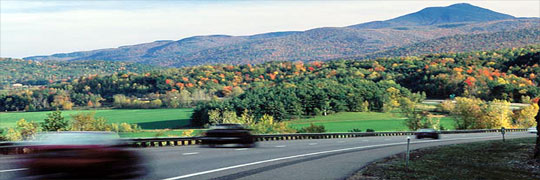How do drivers change behavior in reaction to higher gas prices? Recent Vermont media stories describe anecdotal evidence of changes in consumer behavior such as increases in bicycle and scooter sales (See Clean Cities Archives). Academic research indicates that changes in behavior occur over one to five years and only if the higher prices are sustained. For example, a study from Europe estimates every 10 percent increase in gas prices will reduce fuel consumption by 2.5 percent in the first year, and 6 percent in total over multiple years (Goodwin, Dargay, Hanly: 2004). A recent study by the Congressional Budget Office suggests that 10 percent increases will only reduce gasoline purchases by .06 percent in the short term and 4 percent in the long term. Fuel consumption drops more rapidly than miles traveled for three reasons: Drivers first save fuel by driving more efficiently (slower, less sharp braking, etc. - Learn More!), by choosing routes that burn less gasoline and by driving the most fuel efficient vehicle in their household. The impacts on rural residents are greater than in urban areas (Pew Survey).
Evidence exists in Vermont that fuel consumption is declining, e.g. gasoline sales in March 2008 were 15 percent below the sales of March 2007 (http://rs6.net/tn.jsp?t=ezh9tncab.0.0.78995ccab.0&p=http%3A%2F%2Fwww.leg.state.vt.us%2Fjfo%2FTransportation.htm&id=preview) yet accurate data on the impacts of higher gas prices on consumer behavior is lacking. The Transportation Research Center is collecting data on Vermont transportation energy use for a report to be produced this summer. Send us your story!
Richard Watts
Research Director
UVM Transportation Research Center
Become a Vermont Clean Cities Guest Contributor! Send us your article with sources!
Subscribe to:
Post Comments (Atom)

No comments:
Post a Comment